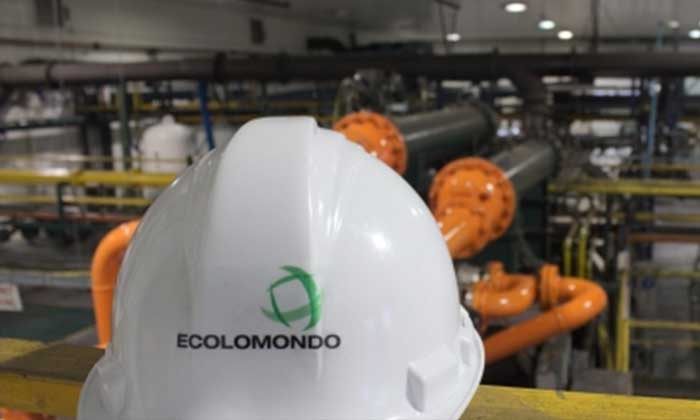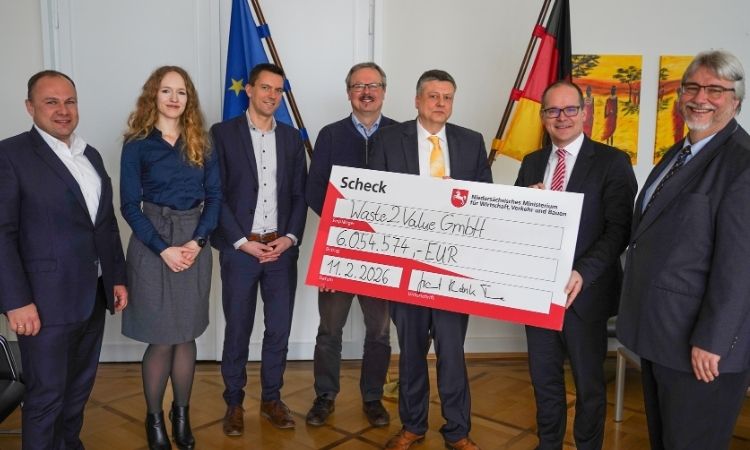Michelin leads a major European project for recycling end-of-life tires into new tires
On September 3 2020, Michelin – on of the leading tire manufacturers in Europe – announced it was going to unite 7 industrial partners, 5 Research & Technological Organizations (RTOs) and an innovation cluster into a European consortium in 5 countries to coordinate the BlackCycle project, aimed to enable a massive circular economy of tires by designing world-first processes to produce new tires from end-of-life tires (ELTs).
In its recent press release, Michelin says that the BlackCycle project is officially funded by the EU in May 2020. The BlackCycle project involves 13 organizations in a unique European public-private partnership that will demonstrate the technical, environmental, and economic viability of world-first circular processes. The consortium will develop specific solutions to produce sustainable raw materials for tires: ELT collection and feedstock selection, pyrolysis optimization, oil refining and valorization, furnace process optimization, and sustainable tire performance assessment. Michelin says that as early as 5-6 years after the project, close to 1 out of every 2 European ELTs will be incorporated into the only virtuous cycle of this magnitude amongst all industrial sectors for the recovery of end-of-life products.
“Funded by the Horizon 2020 program, BlackCycle benefits from an overall budget of about €16 million with an allocated European funding of about €12 million (75% of project costs). About 35% of the project funding is allocated to SMEs, 15% to RTOs and 34% corresponds to the personnel costs.
The consortium covers 5 European countries: France, Spain, Germany, Greece and Switzerland and includes 7 industrial partners, 5 RTOs and an innovation cluster. Coordinated by Michelin, the consortium has designed an effective governance system involving a steering committee, a cluster synergies board, and a technical support committee.
Project participants
The project consists of several entities, where Michelin is represented as a head of the project. Whereas the BlackCycle project has an overall budget of €15.86 million, it’s EU contribution Amounts to €11,9 million.
Apart from the coordinator, 12 other companies participate in the project:
- HERA HOLDING HABITAT, ECOLOGIA Y RESTAURACION AMBIENTAL S.L., Spain (EU contribution = €111,912.50);
- FUNDACION ICAMCYL, Spain (EU contribution = € 197,750.00); 3. AGENCIA ESTATAL CONSEJO SUPERIOR DEINVESTIGACIONES CIENTIFICAS, Spain (EU contribution = €1,054,636.25);
- SISENER INGENIEROS SL, Spain (EU contribution = €1,482,702.14);
- QUANTIS, Switzerland (EU contribution = €281,750.00);
- ALIAPUR, France (EU contribution = €934,132.50);
- AXELERA - ASSOCIATION CHIMIE-ENVIRONNEMENT LYON ET RHONE-ALPES, France (EU contribution = €285,000.00);
- INSTITUT NATIONAL DE L ENVIRONNEMENT ET DES RISQUES INERIS, France (EU contribution = €476,525.00);
- ETHNIKO KENTRO EREVNAS KAI TECHNOLOGIKIS ANAPTYXIS, Greece (EU contribution = €711,350);
- ESTATO UMWELTSERVICE GMBH, Germany (EU contribution = €616,393.75);
- ORION ENGINEERED CARBONS GMBH, Germany (EU contribution = €1,090,916.75);
- PYRUM INNOVATIONS AG, Germany (EU contribution = €1,194,333.00).
To learn more about the participants, please visit the website of the European Commission.
Context of the problem
Michelin pinpoints that 1.6 billion new tires are sold worldwide each year, representing more than 26 million tons, and just as many fall into the category of end-of-life tires (ELT) providing a large and partially tapped potential for material recovery. Today’s ELT treatment processes are not circular and do not result in many raw materials that can be reused in the tire industry. Furthermore, Michelin pinpoints, as there is not enough solution to valorize materials from ELT in the EU, more than half of EU end-of-life and second-hand tires are exported to far-off countries.
A circular economy of tires in Europe as a goal
The BlackCycle project aims at creating, developing, and optimizing a full value chain form ELT feedstock to Secondary Raw Materials (SRMs), with no waste of resources in any part of the chain and a specific attention for the environmental impact. Michelin says that these SRMs will be used to develop new ranges of passenger car and truck tires, which will be sold commercially in European and global markets.
Michelin asserts that as a result, the BlackCycle value chain as a lower carbon footprint, emitting 0.93 kg/CO2/kg tires less and a lower using of fossil resources, using 0.89 kg fossil/kg ELT less.
According to the concept of the project, by offering an economically and environmentally viable alternative, BlackCycle will reduce the export of end-of-life tires. By relocating end-of-life tire management and transformation within the EU, BlackCycle is expected to create sustainable jobs inside the EU.
About Michelin
Michelin is one of the leading mobility companies that is dedicated to enhancing its clients’ mobility and which takes into account important aspect of today’s global agenda – sustainability. Designing and distributing tires, services and solutions for its clients’ needs; providing digital services, maps and guides to help enrich trips and travels and make them unique experiences; and developing high-technology materials that serve a variety of industries. Headquartered in Clermont-Ferrand, France, Michelin is present in 170 countries, has more than 127,000 employees and operates 69 tire production facilities which together produced around 200 million tires in 2019 (www.michelin.com).
Article by Michelin.
Weibold is an international consulting company specializing exclusively in end-of-life tire recycling and pyrolysis. Since 1999, we have helped companies grow and build profitable businesses.









